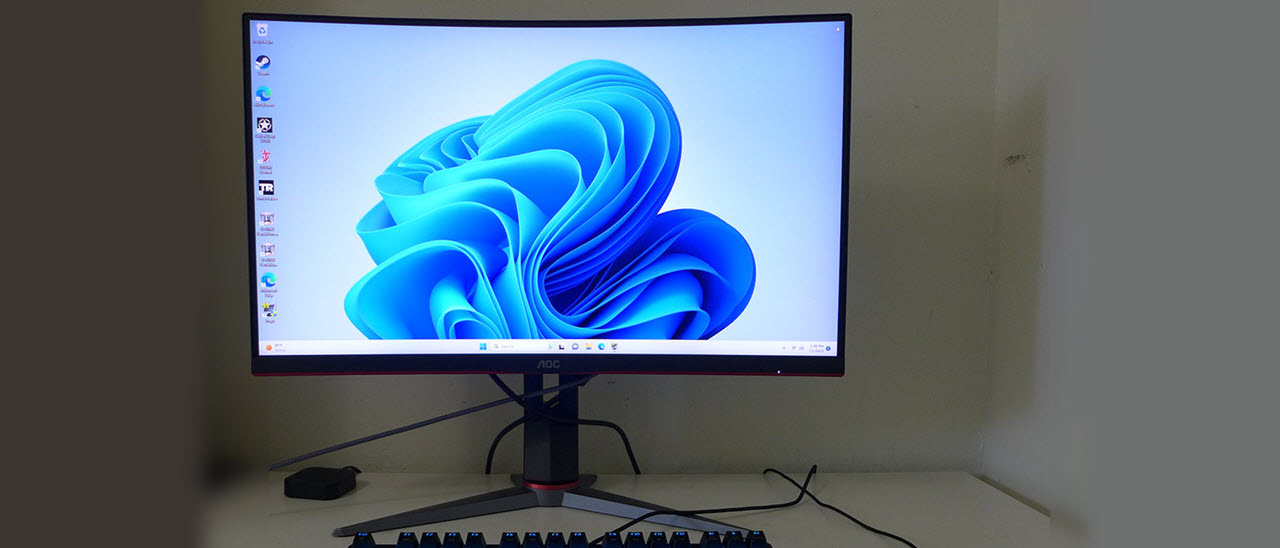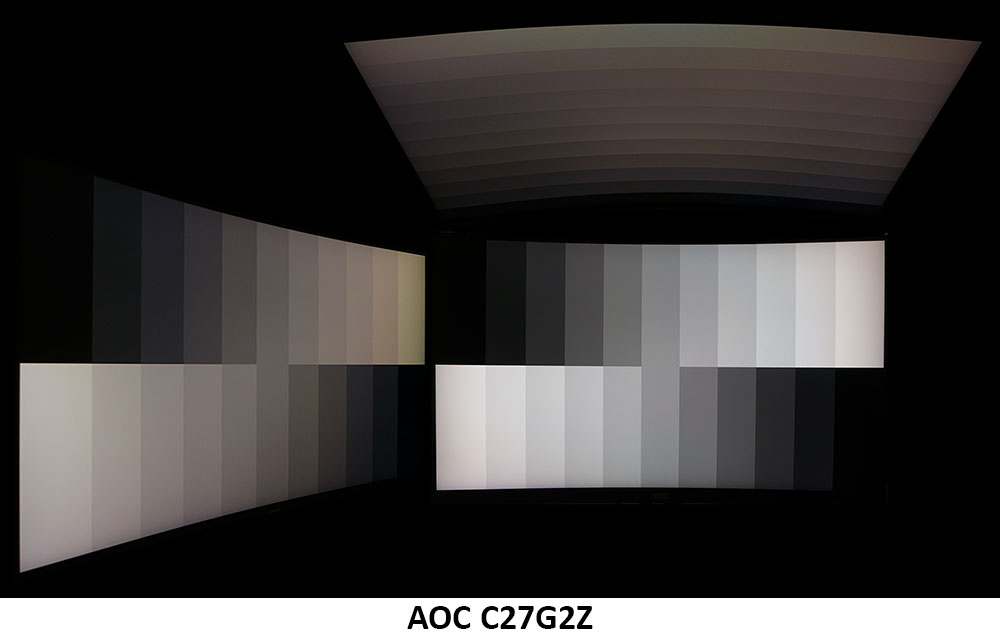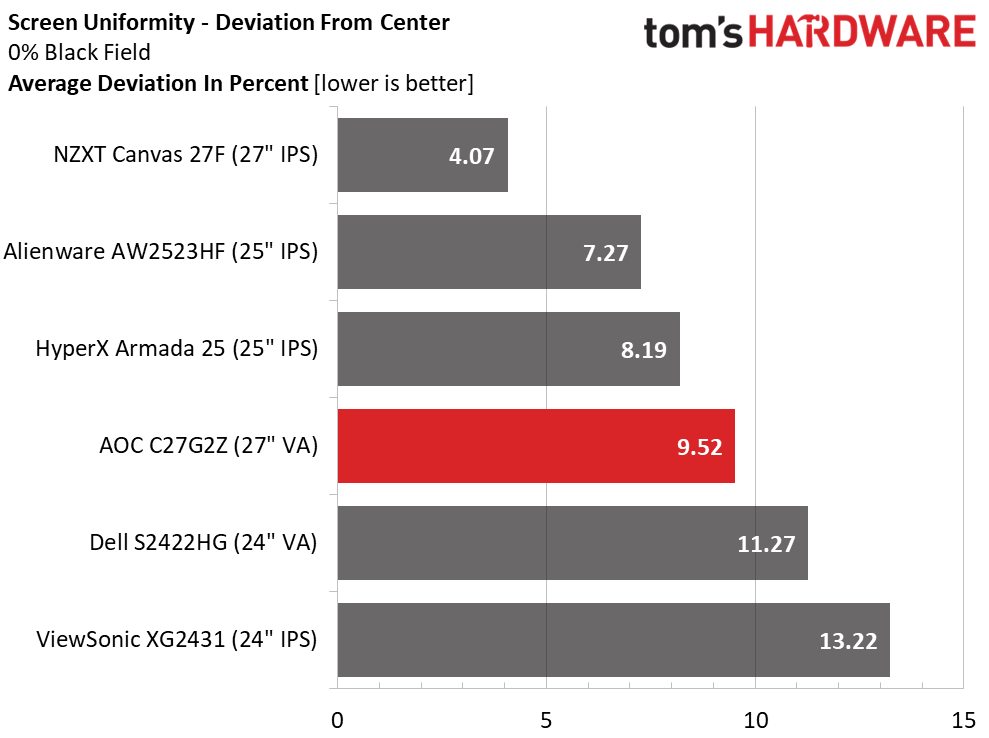Why you can trust Tom's Hardware
To compare the C27G2Z’s performance, I’ve selected monitors ranging in speed from 165 to 360 Hz. We have Dell’s S2422HG, ViewSonic’s XG2431, the HyperX Armada from HP, NZXT’s Canvas 27F and Alienware’s AW2523HF.
Pixel Response and Input Lag
Click here to read up on our pixel response and input lag testing procedures.
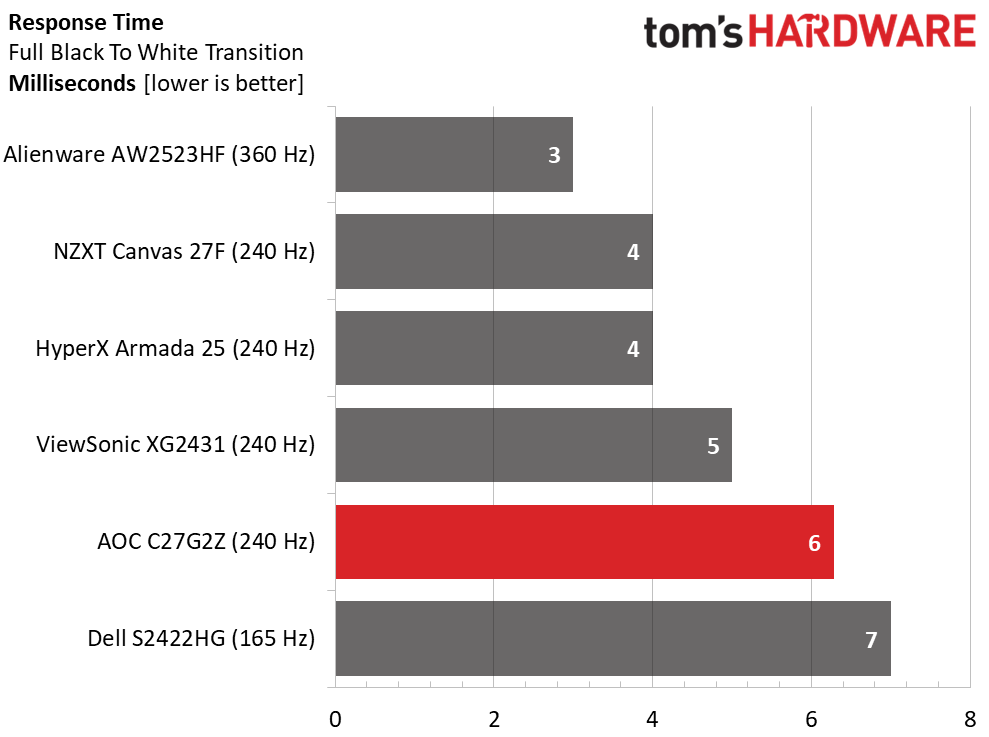
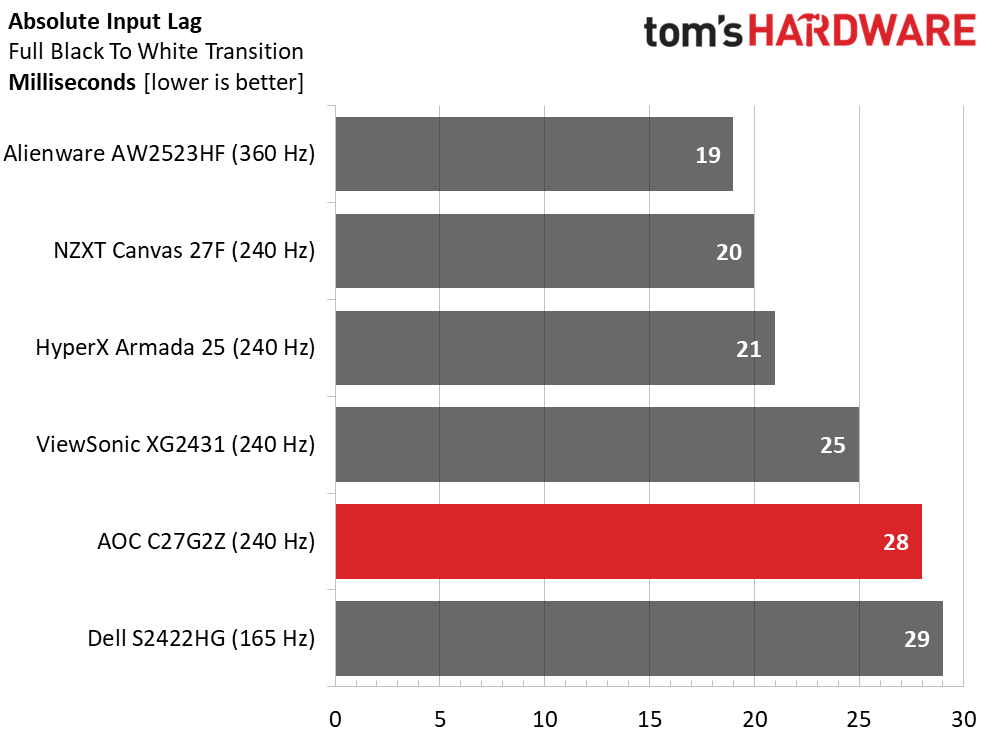
As you can see, 240 Hz monitors are not created equal. The C27G2Z lags a bit in panel response with a 6ms result. This means motion is a tad less smooth than the others. It is visibly better than the 165 Hz Dell though. When testing the overdrive options, I noted that no setting was free of artifacts. I could either choose black or white trails behind moving objects. The MBR option is a little better but then you have to give up Adaptive-Sync.
Overall lag is only 1ms quicker than the Dell. The takeaway here is that the C27G2Z only performs slightly better than a typical 165 Hz monitor. So, it is qualified for competitive gaming but there are faster screens available. Of the 240 Hz monitors in the group, the AOC costs the least.
Viewing Angles
The C27G2Z’s off-axis image quality is just fair. An IPS screen would fare better though these photos show typical VA performance at this price point. At 45 degrees to the side, the image loses around 30% brightness and takes on a red tint. Gamma stays consistent, so you’ll still see full detail. The monitor is almost completely dark from the top. For this reason, you’ll want to be precise in how you place it relative to your eyepoint. A perfectly vertical position is best.
Screen Uniformity
To learn how we measure screen uniformity, click here.
Even value screens show good uniformity when measuring the latest models. The C27G2Z acquits itself well, with no visible bleed or glow in my sample. The meter shows slight elevations down the center of the screen, but I could not see this with the naked eye in either test patterns or content. There are no panel quality issues here.
Get Tom's Hardware's best news and in-depth reviews, straight to your inbox.
MORE: Best Gaming Monitors
MORE: How We Test PC Monitors
MORE: How to Buy a PC Monitor
MORE: How to Choose the Best HDR Monitor
Current page: Response, Input Lag, Viewing Angles and Uniformity
Prev Page Features and Specifications Next Page Brightness and Contrast
Christian Eberle is a Contributing Editor for Tom's Hardware US. He's a veteran reviewer of A/V equipment, specializing in monitors. Christian began his obsession with tech when he built his first PC in 1991, a 286 running DOS 3.0 at a blazing 12MHz. In 2006, he undertook training from the Imaging Science Foundation in video calibration and testing and thus started a passion for precise imaging that persists to this day. He is also a professional musician with a degree from the New England Conservatory as a classical bassoonist which he used to good effect as a performer with the West Point Army Band from 1987 to 2013. He enjoys watching movies and listening to high-end audio in his custom-built home theater and can be seen riding trails near his home on a race-ready ICE VTX recumbent trike. Christian enjoys the endless summer in Florida where he lives with his wife and Chihuahua and plays with orchestras around the state.
